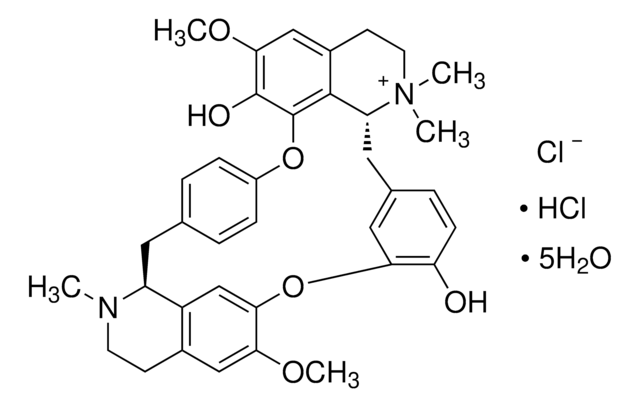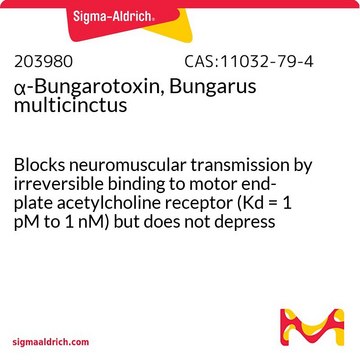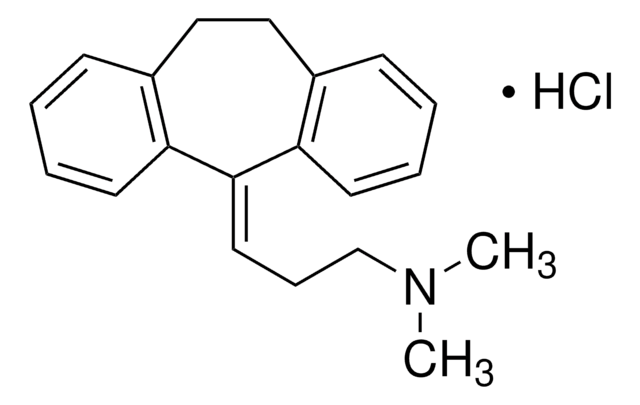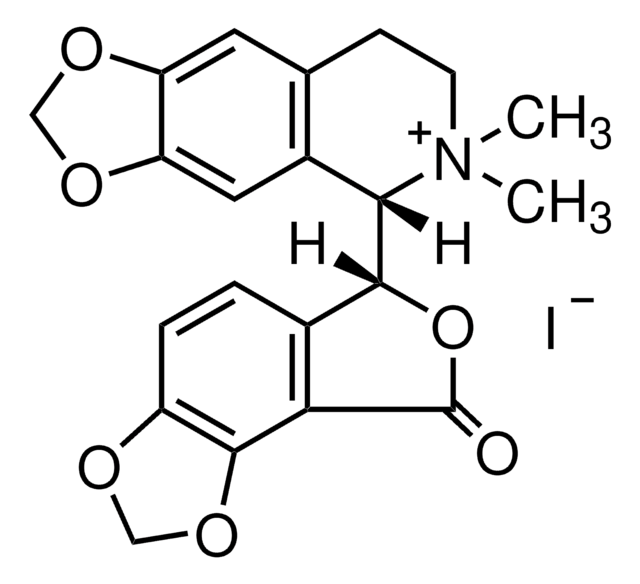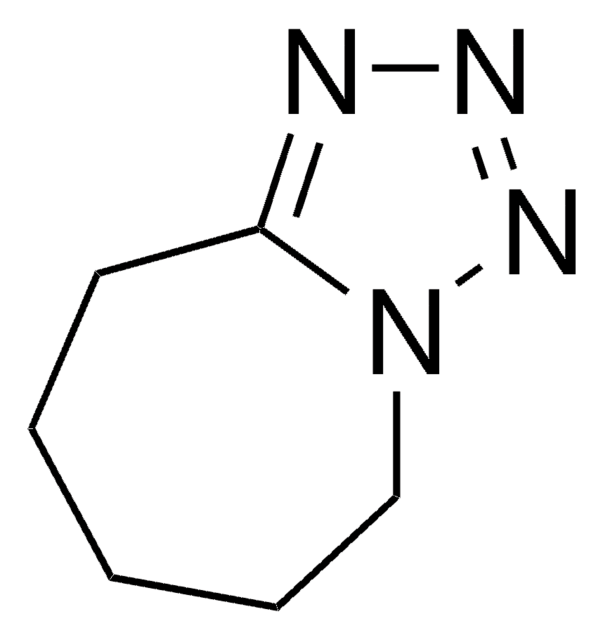T2379
Tubocurarine hydrochloride pentahydrate
≥97%
Synonym(s):
(+)-Tubocurarine hydrochloride
About This Item
Recommended Products
Quality Level
Assay
≥97%
solubility
H2O: soluble 50 mg/ml, with heating as required, clear to slightly hazy, colorless to yellow
ethanol: soluble
methanol: soluble
storage temp.
2-8°C
SMILES string
O.O.O.O.O.Cl.[Cl-].COc1cc2CCN(C)[C@H]3Cc4ccc(Oc5c(O)c(OC)cc6CC[N+](C)(C)[C@H](Cc7ccc(O)c(Oc1cc23)c7)c56)cc4
InChI
1S/C37H40N2O6.2ClH.5H2O/c1-38-14-12-24-19-32(42-4)33-21-27(24)28(38)16-22-6-9-26(10-7-22)44-37-35-25(20-34(43-5)36(37)41)13-15-39(2,3)29(35)17-23-8-11-30(40)31(18-23)45-33;;;;;;;/h6-11,18-21,28-29H,12-17H2,1-5H3,(H-,40,41);2*1H;5*1H2/t28-,29+;;;;;;;/m0......./s1
InChI key
WMIZITXEJNQAQK-GGDSLZADSA-N
Gene Information
human ... CHRNA1(1134) , CHRNB1(1140) , CHRND(1144) , CHRNE(1145) , CHRNG(1146)
Looking for similar products? Visit Product Comparison Guide
Application
Biochem/physiol Actions
Features and Benefits
Preparation Note
Signal Word
Danger
Hazard Statements
Precautionary Statements
Hazard Classifications
Acute Tox. 3 Oral
Storage Class Code
6.1A - Combustible acute toxic Cat. 1 and 2 / very toxic hazardous materials
WGK
WGK 3
Flash Point(F)
Not applicable
Flash Point(C)
Not applicable
Personal Protective Equipment
Certificates of Analysis (COA)
Search for Certificates of Analysis (COA) by entering the products Lot/Batch Number. Lot and Batch Numbers can be found on a product’s label following the words ‘Lot’ or ‘Batch’.
Already Own This Product?
Find documentation for the products that you have recently purchased in the Document Library.
Customers Also Viewed
Our team of scientists has experience in all areas of research including Life Science, Material Science, Chemical Synthesis, Chromatography, Analytical and many others.
Contact Technical Service